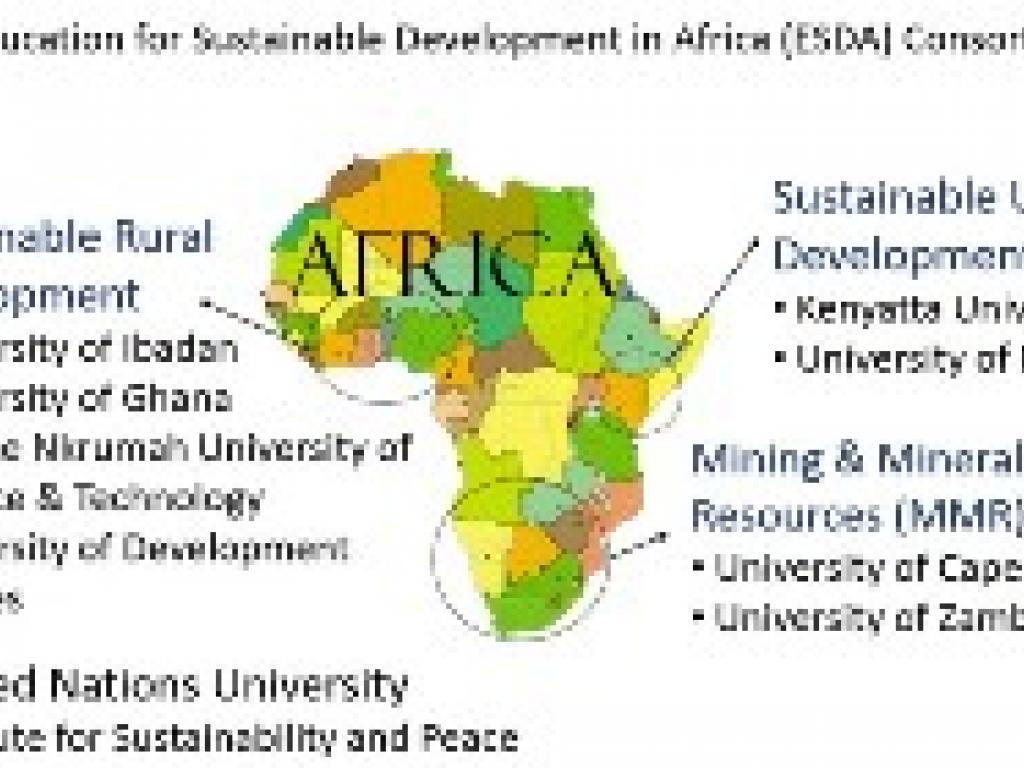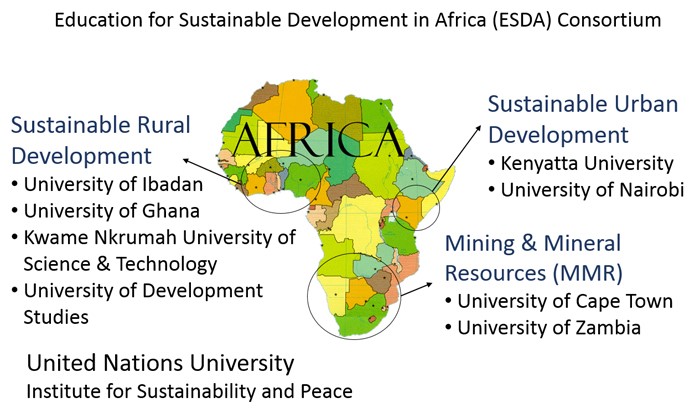UCT’s postgrad degrees tackle the complexities of sustainable development

The United Nations’ 17 sustainable development goals for 2030 include the eradication of poverty and containing the dangerous effects of climate change. But the work that lies ahead requires many knowledgeable individuals capable of working in increasingly complex environments. Universities must step up to the plate, says Professor Harro von Blottnitz, head of Environmental & Process Systems Engineering.

“A master’s degree in an aspect of sustainable development, completed in an interdisciplinary class, is fast becoming the standard entry point for employment in this dynamic and richly challenging field,” said Von Blottnitz.
In order to address this, UCT offers a range of targeted degree programmes. The cohorts of 10–20 students are open both to recent graduates and mid-career professionals wishing to re-tool.
According to Von Blottnitz, the flagship among these is the master’s programme in climate change and sustainable development, which is currently in its fifth cycle. Core courses in climate science and sustainable development, and in climate mitigation and adaptation, are complemented by electives and the dissertation can be completed in any of UCT’s six faculties.
“Infrastructure is both a key enabler of development and a determinant of resource use and pollution. The UCT master’s programmes cater to this need and include sustainable energy engineering; energy and development studies; city and regional planning; design and management of urban infrastructure; and public transport and land-use planning,” said Von Blottnitz.
Although some of these programmes have been on offer for over a decade, curricula are adapted and reformed as knowledge evolves.
Crossing faculties
While many of the programmes are based in the faculties of Engineering and Science; Health, Law and the Humanities have all recognised the importance of sustainable development.
As of 2017 the Faculty of Health Sciences will be offering a specialisation in environmental health within their Master’s in Public Health (MPH) programme. Associate Professor Andrea Rother says that the new MPH Environmental Health track will have core courses in environmental health policy, children’s environmental health (including climate change) and climate change, pollution and health.
Another pioneering programme is the Environmental Humanities South, now in its second year at UCT and offering both an MPhil and a PhD programme.
Tania Katzschner, senior lecturer in UCT’s Department of Architecture, Planning & Geomatics, says, “The environmental humanities is a dynamic and growing field in universities across the world. It pushes thinking about sustainability, cities, justice and equity in new directions by challenging current conceptualisations and developing new ones. It is a field of interdisciplinary scholarship that explores how we understand the relations between humans and the environment. It examines questions of sustainability, human well-being and the environment in their broadest sense.”
This vital intellectual space enables researchers, students, artists, writers, scientists, policy-makers and practitioners to reflect critically on the concepts that underlie contemporary environmentalism, as well as broader social imaginings of ‘the natural’.
The law and sustainability: protecting common spaces
The foundation stone for sustainability in South Africa is the constitutional prescript that the State must take reasonable legislative action as well as undertaking other measures to “secure ecologically sustainable development and use of natural resources while promoting justifiable economic and social development.”
Professor Jan Glazewski from the Institute of Marine and Environmental Law (IMEL) outlines the available courses: “Environmental law, effectively the law around sustainability, is taught not only as an optional course in the LLB but also at postgraduate master’s level by the IMEL. The institute offers four core courses promoting sustainability: Principles of Environmental Law, Natural Resources Law, Pollution Control and Waste Management Law, and International Law of the Sea.”
Glazewski reminds us that it was the landmark 1982 International Convention on the Law of the Sea which triggered the formation of IMEL’s forerunner, the Institute for Marine Law. This convention put the sea-bed beyond national jurisdiction as the common heritage of mankind, thus protecting a common space. Interestingly, he observes that today the African Climate Development Initiative (ACDI) at UCT is grappling with the issue of another use of common space, namely the limited ‘carbon space’ that is available to address the effects of climate change.
Sustainable mineral resource development
The difficult relationship between the mining industry and sustainable development is the subject of the MPhil programme in sustainable mineral resource development. Currently in its third cycle, this programme was conceptualised as one of the offerings of the Education for Sustainable Development in Africa (ESDA) consortium of eight African universities and the United Nations University in Tokyo.
At the second meeting of the consortium, which was recently held in Kumasi, Ghana, it became clear just how important it is that postgraduate education in this field be scaled up across the continent.
UCT has been blazing the trail and through its diverse Africa networks is ready to play a leading role in education that helps achieve the sustainable development goals.
Compiled Pete van der Woude. Photo supplied.